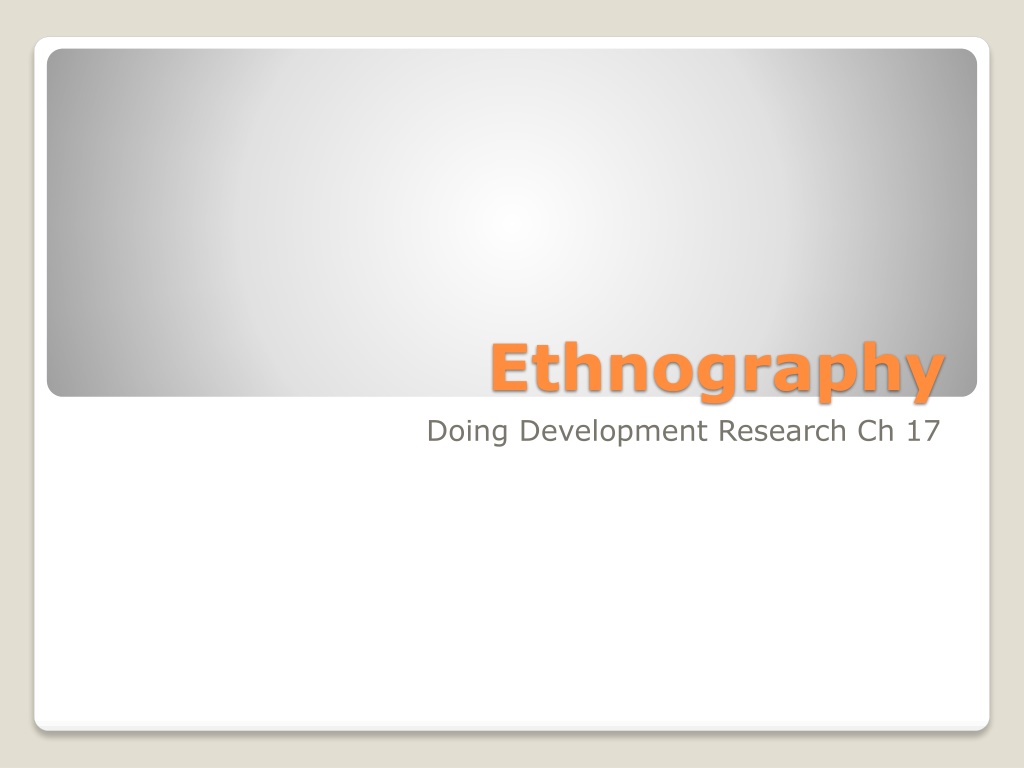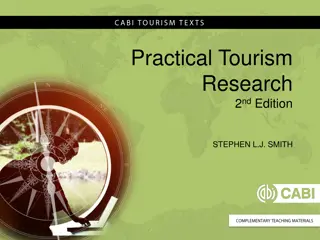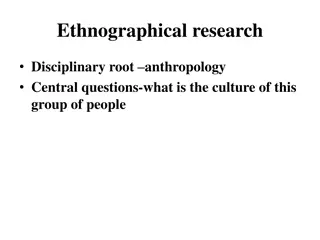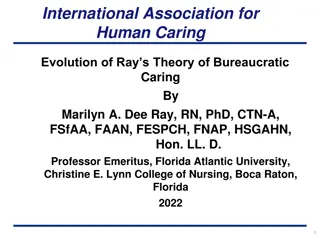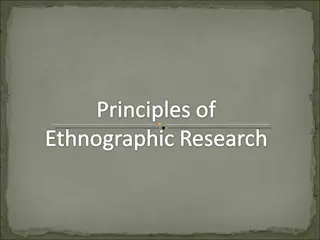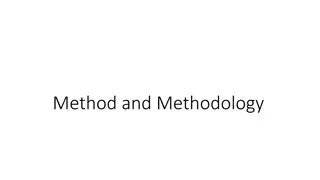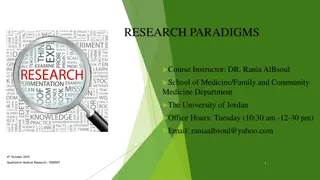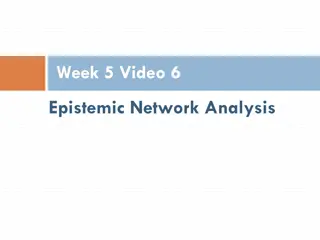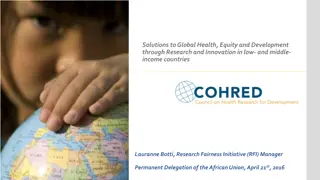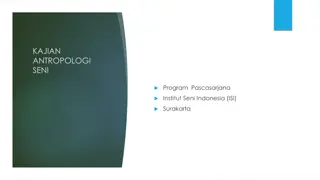Ethnography in Development Research
Ethnography in development research delves into understanding cultural phenomena to guide life, emphasizing the importance of participation and fieldwork. It discusses the nuances of becoming part of a community, maintaining a balance between insider and outsider perspectives, and handling withdrawal stages appropriately. The content covers practical considerations and the socialization aspect of fieldwork, providing insights into conducting research ethically and effectively.
Download Presentation

Please find below an Image/Link to download the presentation.
The content on the website is provided AS IS for your information and personal use only. It may not be sold, licensed, or shared on other websites without obtaining consent from the author.If you encounter any issues during the download, it is possible that the publisher has removed the file from their server.
You are allowed to download the files provided on this website for personal or commercial use, subject to the condition that they are used lawfully. All files are the property of their respective owners.
The content on the website is provided AS IS for your information and personal use only. It may not be sold, licensed, or shared on other websites without obtaining consent from the author.
E N D
Presentation Transcript
Ethnography Doing Development Research Ch 17
Understand the cultural phenomena that reflects and guides life Emic and etic Descriptive and interprets Participation is important because it gives perspective on what is happening Ethnography intro
Field work is the most defining part of ethnography Modern ethnography can be 2 weeks Selecting field; nature of the setting Choosing sampling Gaining access, Gatekeepers can be involved (formal and informal) Easier when the research has knowledge of the area The issue of gender maybe significant; women are seen as less threatening Guidelines for Field work
Becoming part of the community (immersion) This is something you want but is also a danger because you maybe implicated in illegal activities Becoming Invisible
A balance between insider and outside. Physically and emotionally close but remain professionally distant. If you remain an outsider you have not gained the rapport you need Boundaries are not clear, it is relative to a lot of social and cultural characteristics Understand that your personal background will influence how you understand what is happening Reflexive positioning
Withdrawal is probably best handled in a series of stages People can feel used Make the fact that you are leaving explicit at the start and indicate date of leaving Have an event to celebrate project Getting Out
In the previous section we explored fieldwork from a practical perspective, the researcher simply entering the field with an open mind , similar to Glaser and Strauss s (1968 ) notion of fieldwork as a clean slate where the researcher is free of prior experience. However, as Funder (2005) warns, this notion ignores the degree to which we are socialized and institutionalized into adopting ways of structuring and labeling the world we explore. Field as construction
Fassin (2006) says IRB rules cater more to biomedical than social research tips for anonymity: remove identifying info; use pseudonym; reduce/eliminate non- relevant details; separate data and interpretations so others can scrutinize; get research subjects to assist in research; include researcher s responses into research It maybe difficult to get informed consent especially if you are working in public settings Ethics
